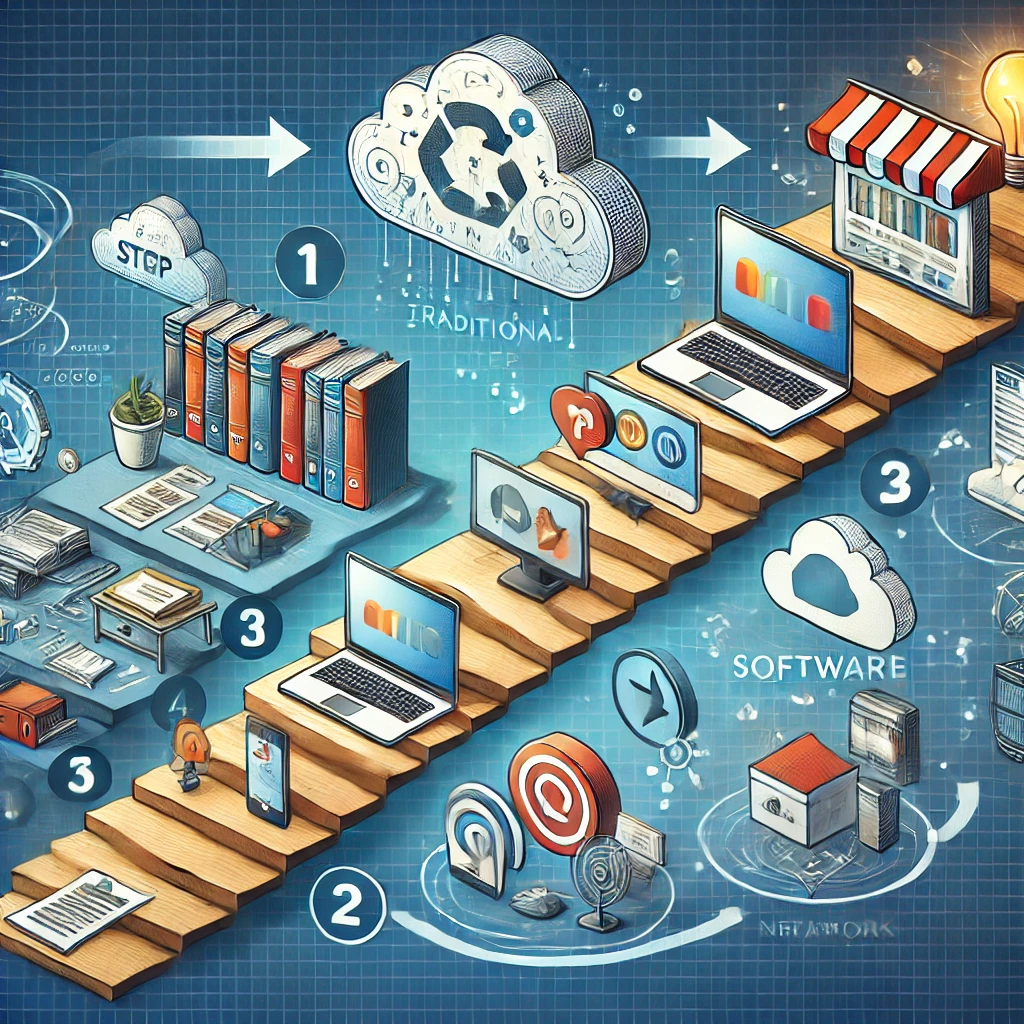
Introduction
In today’s fast-paced digital world, data has become the backbone of successful sales and marketing strategies. Businesses that understand and leverage the power of data combined with technology can create personalized experiences, anticipate trends, and make informed decisions. This blog explores 15 detailed aspects of how data drives success in sales and marketing, with actionable insights for businesses of all sizes.
1. Understanding the Power of Data in Modern Business
Data has revolutionized the way businesses operate. It provides insights into customer preferences, market trends, and business performance. Companies that effectively utilize data make better decisions, develop customer-centric strategies, and gain a competitive edge. For instance, companies like Amazon use customer purchase data to recommend products, boosting sales and improving the customer experience.
To maximize the power of data, businesses need to:
- Develop systems for collecting accurate data.
- Analyze data to uncover trends and opportunities.
- Apply insights to optimize marketing campaigns and sales strategies.
2. Technology as the Catalyst for Data-Driven Success
Technology plays a critical role in unlocking the potential of data. Tools such as Customer Relationship Management (CRM) systems, analytics platforms, and cloud storage solutions enable businesses to collect, store, and analyze vast amounts of data efficiently.
For example:
- CRM tools like Salesforce help track customer interactions.
- Google Analytics provides insights into website traffic and customer behavior.
- AI-driven tools automate tasks like customer segmentation and trend prediction.
Adopting these tools empowers businesses to act on data insights faster and with greater precision.
3. The Role of Big Data in Sales Growth
Big data involves collecting and analyzing massive datasets to uncover patterns, trends, and correlations. Sales teams use big data to:
- Identify high-value customers.
- Predict purchasing behavior.
- Optimize pricing and promotional strategies.
A well-known example is Coca-Cola, which uses big data to analyze customer feedback and adjust its marketing campaigns. By leveraging big data, businesses can uncover untapped opportunities and maximize revenue.
4. Harnessing Data for Personalized Marketing Campaigns
Personalization has become a cornerstone of effective marketing. Data allows businesses to understand individual customer needs, enabling tailored campaigns that resonate.
- Email marketing platforms use data to send personalized messages.
- Social media platforms like Facebook leverage data to target specific audience segments.
- Retargeting ads remind customers of products they browsed, increasing conversions.
Businesses that embrace personalization build stronger customer relationships, resulting in higher loyalty and sales.
5. Predictive Analytics: Shaping Future Sales Strategies

Predictive analytics uses historical data to forecast future trends and behaviors. This allows businesses to:
- Anticipate customer needs.
- Identify sales opportunities.
- Allocate resources effectively.
For example, Amazon’s recommendation engine predicts what products customers are likely to purchase based on their browsing history. Predictive analytics empowers businesses to stay ahead in competitive markets.
6. The Integration of AI and Machine Learning in Marketing
AI and machine learning (ML) have transformed marketing by automating processes and uncovering insights that humans might miss. Applications include:
- Chatbots providing real-time customer support.
- AI-driven content creation for blogs and social media posts.
- Sentiment analysis to gauge customer opinions.
AI and ML enable businesses to create smarter, data-driven strategies that deliver measurable results.
7. Real-Time Data in Marketing Decisions
Real-time data allows businesses to make instant decisions, improving responsiveness and relevance. For instance:
- Retailers adjust inventory levels based on real-time sales data.
- Marketers launch campaigns during peak engagement periods.
- Social media managers respond to customer queries promptly.
With real-time data, businesses can capitalize on opportunities as they arise.
8. The Importance of Data Privacy and Security
Data misuse can lead to legal consequences and loss of customer trust. Businesses must:
- Comply with regulations like GDPR.
- Encrypt sensitive data.
- Educate employees on data security practices.
Maintaining data privacy demonstrates ethical responsibility and builds customer confidence.
9. Data Visualization: Making Sense of Complex Information
Data visualization transforms complex datasets into easy-to-understand charts and graphs. It helps decision-makers:
- Identify trends at a glance.
- Communicate findings effectively.
- Make informed decisions quickly.
Popular tools like Tableau and Microsoft Power BI make data visualization accessible to businesses of all sizes.
10. Key Performance Indicators (KPIs) for Data-Driven Success
KPIs are measurable metrics that track progress toward goals. In sales and marketing, common KPIs include:
- Customer Acquisition Cost (CAC).
- Return on Investment (ROI).
- Conversion Rates.
By monitoring KPIs, businesses can identify strengths, weaknesses, and areas for improvement.
11. Case Studies: Companies Winning with Data
Companies like Google, Amazon, and Netflix have built their success on data-driven strategies. For example:
- Netflix uses viewing data to recommend shows and produce content.
- Google analyzes search data to optimize its algorithms.
These case studies highlight the immense potential of data in achieving business goals.
12. Overcoming Challenges in Data-Driven Marketing
Despite its benefits, data-driven marketing has challenges, including:
- Data overload.
- Integration issues.
- Ensuring data accuracy.
Strategies to overcome these challenges include investing in scalable tools, training staff, and focusing on quality over quantity.
13. The Future of Data in Sales and Marketing
The future of data lies in:
- Hyper-personalization: Tailoring experiences to individual preferences.
- Blockchain technology: Securing data transactions.
- Advanced AI applications: Enhancing decision-making.
Businesses that adopt emerging trends will stay ahead of the curve.
14. Building a Data-Driven Culture in Organizations

Creating a data-driven culture requires:
- Leadership support.
- Employee training.
- Investing in tools and technologies.
Organizations that embrace data at every level achieve better collaboration, innovation, and results.
15. Actionable Steps to Get Started with Data-Driven Strategies
To begin a data-driven journey:
- Define clear objectives.
- Invest in the right tools.
- Start small and scale up.
- Continuously analyze and refine strategies.
Taking these steps ensures businesses achieve sustainable growth through data-driven decision-making.
FAQs
1. What is the significance of data in sales and marketing?
Data allows businesses to understand their customers better, predict market trends, and craft personalized strategies. It minimizes guesswork and ensures targeted efforts, leading to higher ROI.
2. Which tools are essential for data-driven marketing?
Some popular tools include:
- CRM Systems: Salesforce, HubSpot.
- Analytics Tools: Google Analytics, Tableau.
- AI Solutions: IBM Watson, ChatGPT.
3. How does data improve customer personalization?
By analyzing customer data, businesses can identify preferences, habits, and needs. This enables personalized campaigns that resonate with the audience, improving engagement and conversion rates.
4. Are there risks involved in using data?
Yes, misuse or mishandling of data can lead to legal consequences and loss of customer trust. Always comply with regulations like GDPR and prioritize data security.
5. How can small businesses start with data-driven strategies?
- Begin by collecting basic customer data.
- Use affordable tools like Google Analytics.
- Focus on understanding your audience before scaling up.
6. What is the future of data in sales and marketing?
The future lies in predictive analytics, hyper-personalization, and advanced AI technologies, which will make marketing even more precise and effective.
Conclusion
Data, combined with technology, is a powerful driver of success in sales and marketing. By leveraging insights, adopting the right tools, and staying ahead of trends, businesses can unlock new opportunities and thrive in an increasingly competitive landscape.



